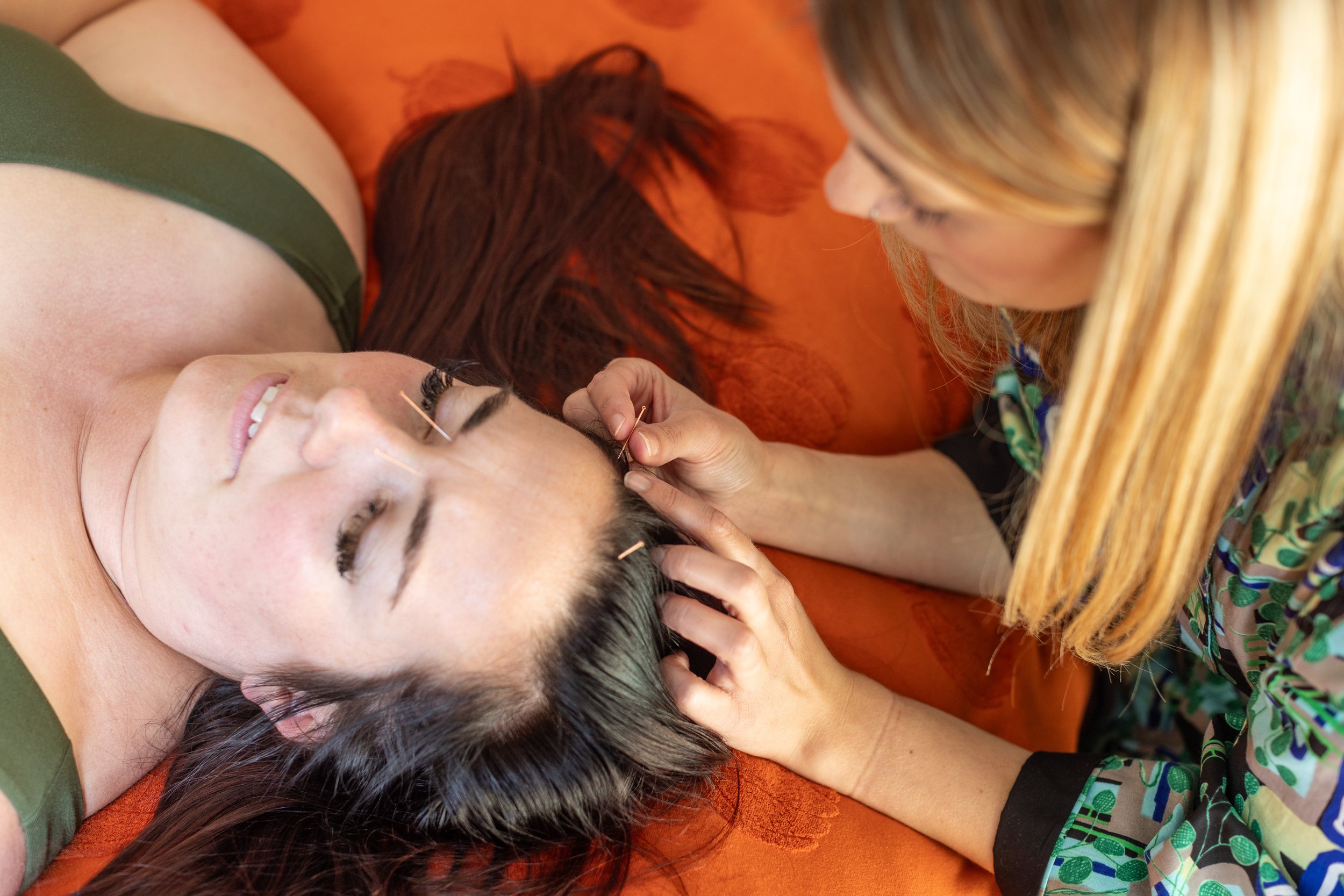
Acupuncture is a time-tested practice that can balance the body’s energy, helping to relieve pain and promote holistic health.
How does acupuncture work?
Acupuncture works by stimulating specific points on the body, known as acupuncture points using thin needles. Rooted in Traditional Chinese Medicine (TCM), it aims to balance the flow of energy, or "Qi," through pathways called meridians. The insertion of needles helps unblock or balance Qi, promoting overall health. This process triggers the nervous system to release endorphins and neurotransmitters, reducing pain and inducing relaxation. Additionally, acupuncture enhances blood circulation to treated areas, facilitating healing while regulating bodily functions such as digestion, immune response, and hormonal balance. It may also decrease inflammation, benefiting various conditions. Overall, acupuncture promotes balance within the body, addressing both physical and emotional issues by targeting underlying causes of discomfort.
How big are the needles?
Acupuncture needles are very thin, typically ranging from 0.12 to 0.35 millimeters in diameter, which is less than a singular strand of hair and way much finer than a standard hypodermic needle. Their length can vary from about 13 mm (0.5 inches) to 75 mm (3 inches) depending on the area of the body being treated. Despite their size, most people feel little to no discomfort when they are inserted.
Does it hurt?
Acupuncture typically does not hurt. The needles are very thin, causing little to no discomfort during insertion. Most people feel a slight pinch or pressure, and many experience relaxation or warmth afterwards. Any sensations, like tingling or heaviness, are usually mild and indicate that the treatment is working. Your comfort is my priority, and I do every thing I can to ensure a pleasant experience throughout the session.
Why are the needles used?
Needles are used in acupuncture to stimulate specific points on the body, promoting healing and balance. They help unblock the flow of Qi (energy) along meridians, activating the nervous system to release natural pain relievers like endorphins and improve circulation. This targeted stimulation effectively addresses various conditions while being minimally invasive, making acupuncture a gentle and effective therapy.
How frequently do I need treatment?
The frequency of acupuncture treatments depends on individual needs, the condition being treated, and personal goals. To being with to obtain the best results I usually recommend 1-2 sessions per week, to get on top of the complaint. Once the symptoms have started to calm down treatments can become weekly or biweekly treatments. For maintenance, some choose monthly or seasonal sessions. Factors like age, lifestyle, and overall health also influence treatment frequency. During your consultation, we'll create a personalised plan tailored to your specific needs.
Is acupuncture sanitary?
Acupuncture is a sanitary practice when performed by a trained and licensed practitioner. Professional acupuncturists like myself use single-use, sterile needles that are disposed of after each treatment, ensuring a hygienic environment. Additionally, I adhere to strict hygiene protocols, including cleaning the treatment area and using gloves when necessary, to minimize the risk of infection or cross-contamination.
Is acupuncture safe?
Numerous scientific studies have been published regarding the safety of acupuncture, concluding that it is safe when administered by a properly trained practitioner. The British Acupuncture Council (BAcC) recommend ensuring your acupuncturist is a member of a professional organization, such as The British Acupuncture Council.
Acupuncture may sometimes result in a small bruise at the insertion site. Some individuals might experience fatigue or dizziness after treatment, but these sensations usually pass quickly.
Do I need moxibustion?
Whether moxibustion is suitable for you depends on your specific health needs. This technique, which involves burning dried mugwort near acupuncture points, can aid chronic pain, cold extremities, and menstrual issues by promoting warmth and circulation. It also helps invigorate Qi for fatigue, supports breech babies in late pregnancy, and enhances acupuncture's effects. We can discuss if it is something that would be appropriate for you during your consultation.




